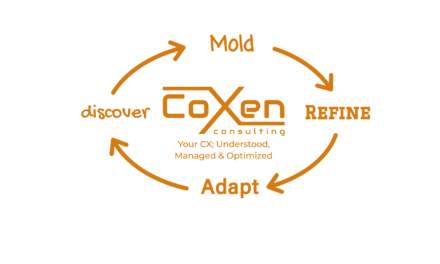You’ll never regret choosing to be kind, and your kindness might be what’s making your team better.
As a leader, have you ever been told you need sharper elbows? Or, you have to be harder on your team? What about, you’re just too nice of a person? These are all things that have been said about me at one time or another. Gratefully they were never said in regard to holding my teams accountable, they might have almost been understandable feedback in an instance like that.
These type of comments have mostly come to me during times when I was being considered for a promotion or a transfer. And
For example, where sharper elbows going to endear the peer to me more for the next opportunity of collaborative work we had to do for the company? My experience was it would not, and for us to improve our working relationship that peer what need to know I was concerned about what was important to them and not just concerned about my own successes.
In a recent, article by Leah Thomas, copied below, the benefits of kindness and caring from a leader are pointed out. I strongly recommend reading. It drives home some very important principles I’ve held as key to being a good and capable leader and ensuring the may teams are ready for the customers that come there way.
In more than two decades of leadership, I can’t think of one time where I left a situation regretting how it was handled because I offered too much kindness. I can’t think of one employee how was harmed or did harm to the organization because too much kindness was afforded them.
On the other hand, I can remember in vivid details two different meetings where my forceful use of sharp elbows with peers led to damaged relationships and much productivity loss in partnerships. The one to many hours over months to repair to get back to an effective working relationship. The other relationship never was productive again.
During a recent job change, I was thanked by my former direct reports as a fun collective note. Many of them mentioned caring and kindness in our working relationship that led them feeling more comfortable and confident in their roles. A note that I will forever treasure from someone I had very little overlap with and I thought very little about the small effort I offered:
“Dear Danny,
“I just wanted to let you know how much I’ve appreciated having you as a Leader. I know we didn’t work together that often but you were the first Leader who showed me that [company name] is full of wonderful people.
“My first time to New York, you offered to let me tag along in the car you ordered rather than take the subway. You told me about your career, pointed out the sights, and helped me feel at ease with being in a big, strange city. It might have been a little thing but it meant more to me than I could ever explain.
“You’ve been an incredible example to me of a person cares about others because it’s the right thing to do.”
Any caring act of kindness will come back to you for the good, no matter how small. Employees have more choices than ever, they likely won’t stay at a place for long that doesn’t value them and treat them with some level of kindness. As leaders, we’ll always need to hold people accountable and we will still have tough and direct conversations; but there is no reason for us not to try and have these conversations with as much caring and kindness as positive.
“When given the choice between being right or being kind, choose kind” from Dr. Wayne W. Dyer, remains a helpful reminder always.
Enjoy finishing with the great insight of Leah Thomas.
1 super rare sign you’re supposed to be a leader, according to science
NOVEMBER 1, 2018
If you’re someone who is able to keep your cool — and care — even when your team is driving you nuts, you were born to be a leader.
Leaders are often depicted as cold-hearted, no-nonsense figures without a trace of a soul (think: Miranda Priestly). But recent research shows that successful leaders have a completely different attribute that’s contradictory to the previously taught leadership qualities: true kindness.
According to research, employees enjoy working for a leader who takes charge and creates her own rules in a nice way. A leader who seems to actually care about them, their livelihoods, their families, their work-life balance in a genuine way.
It can be difficult for most leaders to exude under the stresses of management, but kindness in a leader has been found to create not only a happier work
- Kindness improves employee well-being and productivity
When employees are friendly and help one another with tasks, they develop better relationships with coworkers (seems obvious, right?) These relationships create a healthier work environment, one that is not based on fear of repercussions, which, in turn, improves employee productivity. Workers are also more likely to perform better and be more efficient with their time without being watched and told to hurry up by a mean boss. Seems like kindness really can pay off.
- People’s brains respond to kindness in a way that improves teamwork
According to Judith Glaser, CEO of Benchmark Communications and author of Creating WE, the human brain is wired to respond well to kindness and respect. “When someone is kind and respectful to us, our brains produce more oxytocin and dopamine, which helps us relax, feel open to others, and be more sharing and cooperative,” Glaser said. Being open and allowing collaboration is beneficial to the teamwork necessary in most professions.
- Kindness in the workplace leads to trust in the workplace
In a survey conducted by PricewaterhouseCoopers, 1,409 CEOs in 83 different countries were interviewed on improving employee performance. The survey discovered that kindness leads to greater employee dedication and commitment to their company. Kindness also breaks down communication barriers that may exist, reduces dangerous competition among employees, and improves relationships with company shareholders.
- Kindness creates learning and innovation
Kindness, along with the qualities of empathy and understanding, is important to innovation. These qualities lead to personal psychological safety, according to research from Bar-Ilan University in Israel and the University of Michigan. This “psychological safety” makes employees more likely to learn from their failures, rather than be discouraged. Those who are psychologically safe are more likely to share personal information, as well as work together to come up with creative solutions to problems in the workplace.roblems in the workplace.






What is being talked about…